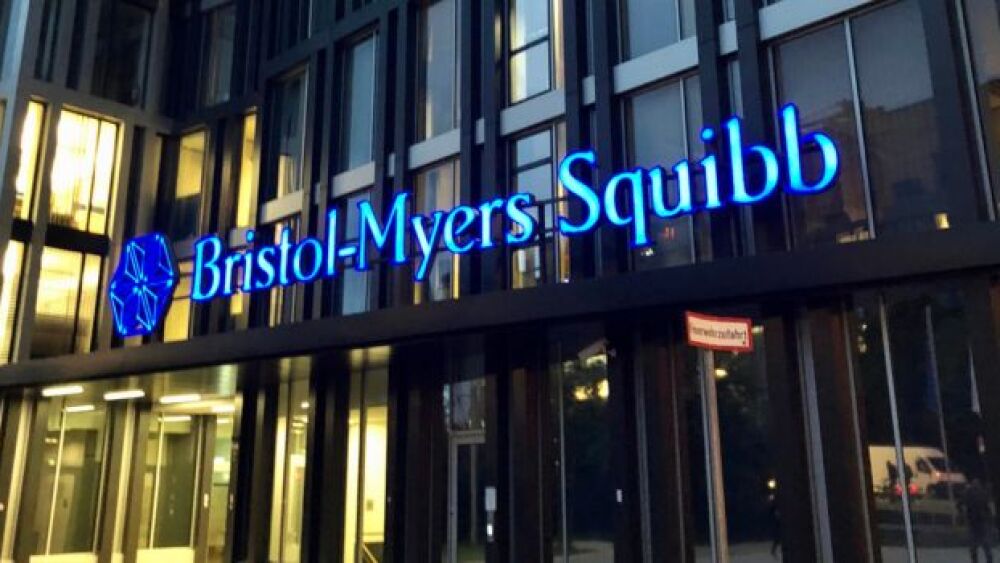Building on a previous 2021 collaboration, Bristol Myers Squibb is paying $100 million upfront for the development of five cardiovascular targets utilizing Avidity Biosciences’ antibody oligonucleotide conjugates.
Pictured: Bristol Myers Squibb building in Munich/iStock, Tati Campelo
Bristol Myers Squibb is upping the ante in its partnership with Avidity Biosciences. The San Diego-based biopharma announced Tuesday an expansion of its previous collaboration with BMS, with the latter paying $100 million upfront and adding up to five cardiovascular targets.
With potential cumulative payments of up to $2.3 billion plus low double-digit royalties, the partnership could be a lucrative one for the RNA biopharma. The deal expansion sent Avidity’s suffering stock soaring around 35% in premarket trading. A welcome reprieve to the 72% tumble it took earlier this year.
Avidity will get a $60 million upfront cash payment in addition to BMS scooping up $40 million of its stock to deliver new cardiovascular treatments utilizing the former’s antibody oligonucleotide conjugates (AOCs).
Avidity’s AOCs combine the targeting specificity of monoclonal antibodies with the precision of oligonucleotide therapies to treat diseases RNA therapeutics couldn’t reach before, according to the company.
“This collaboration with Avidity represents an important part of our continued investment in innovative therapeutic approaches that have the potential to provide transformative outcomes to patients living with serious cardiovascular conditions,” Francisco Ramírez-Valle, head of BMS cardiovascular thematic research, said in a statement.
The deal builds on a previous collaboration between Avidity and MyoKardia, a subsidiary of BMS. In 2021, the two announced a research partnership to demonstrate AOC efficacy in cardiac tissue, broadening beyond its use in skeletal muscle.
Avidity is a clinical stage biopharma with three candidates in early-stage trials for types of muscular dystrophy as well as additional assets in lead optimization for rare skeletal muscle and rare cardiac diseases. The company’s lead candidate for muscle wasting disorder was subject to an FDA clinical hold in September 2022, which has since been changed to a partial clinical hold.
With the Avidity deal, BMS continues its spending spree. Despite pushing back 2023’s target sales due to a third-quarter revenue decline, the pharma giant has been recently dropping money on deals.
Earlier this month, BMS paid $100 million upfront to Orum Therapeutics for the company’s anti-CD33 antibody enabled GSPT1 degrader that aims to treat patients with acute myeloid leukemia. In October 2023, BMS announced a merger agreement with Mirati Therapeutics paying $4.8 billion for its oncology franchise. The company also expanded its manufacturing agreement with Samsung Biologics for an unnamed cancer antibody in a deal worth $242 million in September 2023.
Kate Goodwin is a freelance life science writer based in Des Moines, Iowa. She can be reached at kate.goodwin@biospace.com and on LinkedIn.






